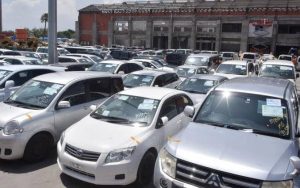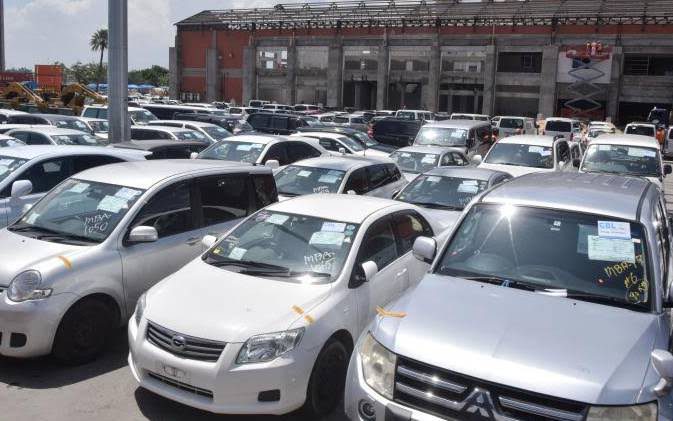New car purchases in Kenya dropped by 26.4 percent in the six (6) months up to June 2020. The drop is so far being attributed to the ongoing Covid-19 pandemic and its economic implications.

According to Data released by the Kenya Motor Industry Association formal dealers like Toyota Kenya & Isuzu East Africa experienced their sales decline to 4,628 units during the period that was reviewed. This is a far cry from the 6,294 units that were sold in 2019 during the same period.

A larger portion of the decline went down in the second quarter of 2020 (from April to June) and is seen as a direct effect of the economic impact of the ongoing pandemic, as well as the numerous travel restrictions imposed to help curb its spread.
Sales in the second quarter of 2020 declined by 44.8 percent to 1,930 units. This is a bigger decline when compared to the 3.5 percent decline in the first quarter of 2020 (January to March), which had a sale of 2,698 units.
The Managing Director of Toyota Kenya; Arvinder Reel said, “The year 2020 started well, as the industry built up on the momentum from 2019. However, there was a drastic drop from March to May 2020 due to the Covid-19 effect on the economy.”

Kenya recorded its first Coronavirus (COVID-19) case in the middle of March 2020. The news led to the echoes of widespread panic. The Kenyan in response and in a move to stop the pandemic from spreading further, carried out a number of measures. Among such measures were the closing of educational institutions, clubs, restaurants and the banning of international flights and travel in general.
From April 6th to July 6th 2020 travel bans were also issued in Mandela county, Mombasa county as well as in and out of Nairobi’s Metropolitan sections.
It is believed that the closure of schools alone with the travel restrictions, played a substantial role in the decline of the purchase of commercial vehicles in Kenya.
Mr. Arvinder Reel states that, “Overall, sales of commercial vehicles (pickups, 14-seater minibuses, trucks and buses) contributes 50 percent of total new vehicles market,” adding that, “Unfortunately, this is the segment that has been the most affected due to restriction of travel/movement and lock-downs of the major towns.”
The travel restrictions also negatively affected the revenue and earnings of public service operators, as well as cargo transporters, leaving the former with the only option of carrying less passengers and the latter with little or no need of or for their services. In the first half of 2020, the average sales monthly, declined to 771 units compared to 1,049 during the same period in 2019.
While sales fell to 568 units in May 2020, they rose to 762 units in June of the same year (2020). Dealers across board, are hoping that the current comeback, will be consistent. Especially if the nation’s economy continues its current growth strides.

The Toyota Kenya Managing Director stated further that, “We are optimistic that this positive trend will continue as the national government puts in place guidelines that will help in re-opening the economy.”
An increase in sales in the car delearship industry, will be essential in preventing a huge loss of jobs. It will also prevent a loss of revenue for the Kenya Revenue Authority which reportedly records billions of Kenyan Shillings in taxes from car sales.
According to Business Daily, car assemblers which operate in Kenya (including Associated Vehicle Assembly and Isuzu East Africa), contribute 8.6 billion Kenyan Shillings (80 million dollars) in tax revenues to the nation.
The Kenyan Government has also pledged to purchase 600 million Kenyan Shillings worth of locally assembled cars, as part of its stimulus spending to help fight the economic strain caused by the ongoing pandemic. While the figure reportedly represents less than 5 percent of the value of locally assembled cars annually, it is still projected to go a long way in turning things around.
Are there any other topics, news or categories that you would like us to write on? Feel free to reach out to Mpesa Pay in the comment section.


